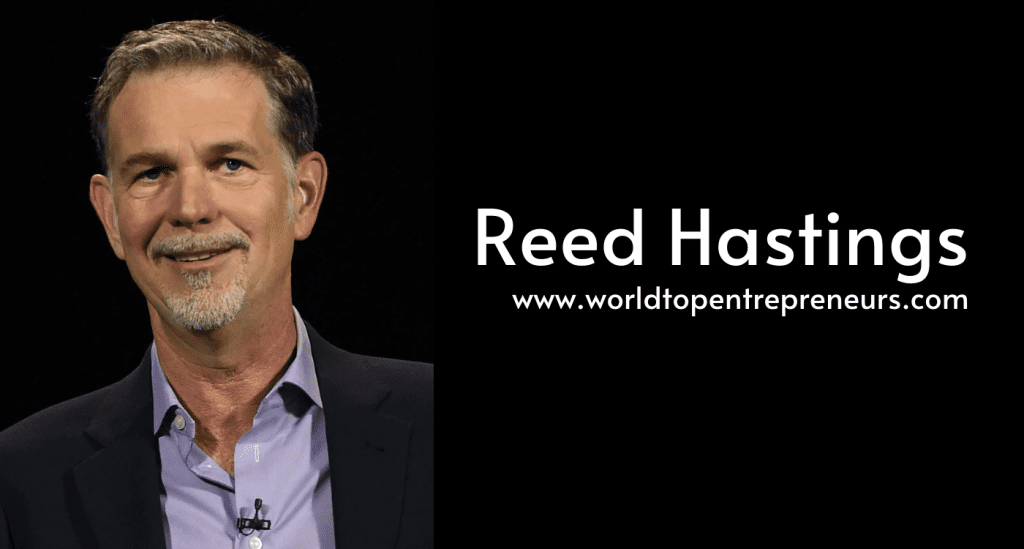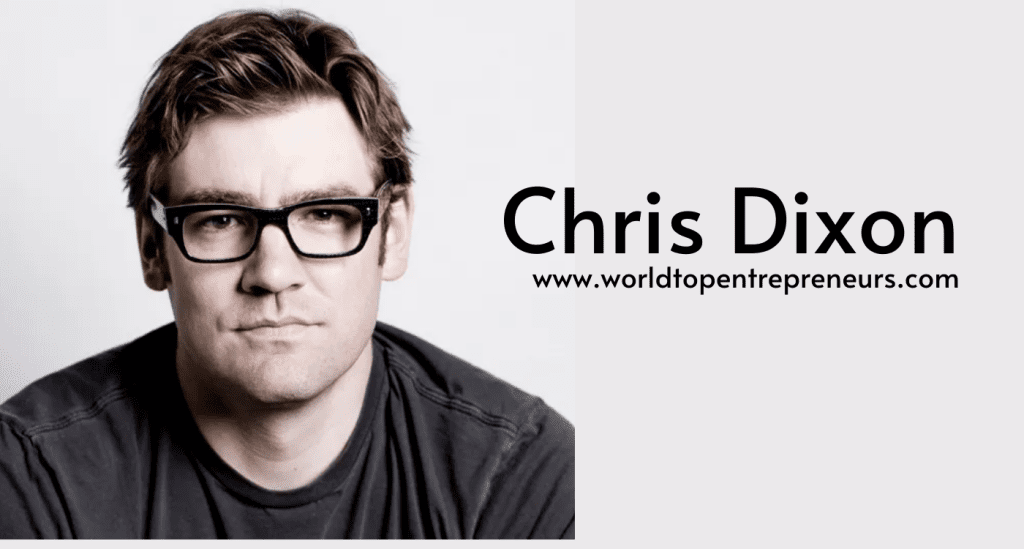In a world where streaming has become as commonplace as eating breakfast, it’s easy to forget that just a few decades ago, the concept of watching an entire season of a television show at once was a far-fetched idea. Much of this transformation can be traced back to one man: Reed Hastings. As the co-founder and former CEO of Netflix, Hastings has been a driving force behind the company’s rise from a DVD rental service to a global streaming powerhouse. His journey is a testament to innovation, resilience, and the relentless pursuit of redefining entertainment.
Early Life and Education
Reed Hastings was born on October 8, 1960, in Boston, Massachusetts. His early years were marked by a fascination with technology and a keen interest in mathematics and computer science. Hastings’s academic journey began at Bowdoin College, where he earned a Bachelor of Arts in Mathematics. His thirst for knowledge did not end there; he went on to complete a Master’s degree in Computer Science from Stanford University. During his time at Stanford, Hastings immersed himself in the burgeoning world of technology, where he would eventually find the seeds of his future ventures.
The Genesis of Netflix
The inception of Netflix in 1997 was not a result of a single moment of inspiration but rather a series of observations and experiences. Hastings, who had previously founded a company called Pure Software, which specialized in debugging tools, realized that the entertainment industry was ripe for disruption. The idea of Netflix emerged from his frustration with late fees associated with video rentals—a problem he faced with a late return of a rented copy of “Apollo 13.”
Hastings teamed up with Marc Randolph, a former colleague at Pure Software, to create Netflix. The initial concept was a DVD rental service that allowed customers to rent movies online and have them shipped to their homes. This model was revolutionary at the time, addressing a major pain point for consumers and leveraging the growing popularity of the internet.
The Road to Streaming
Netflix’s early years were characterized by experimentation and adaptation. The company initially focused on a subscription-based model for renting DVDs, eliminating late fees and offering an extensive library of films. However, it was clear to Hastings that the future lay in digital streaming.
In 2007, Netflix took a bold step by launching its streaming service, allowing subscribers to watch movies and TV shows instantly over the internet. This pivot to streaming was not without its challenges. At the time, internet speeds and digital infrastructure were not as advanced, and content availability was limited. Hastings’s foresight, however, proved to be correct. The move to streaming marked the beginning of a new era in entertainment, one that would fundamentally alter how people consumed media.
Pioneering the Original Content Era
By 2013, Netflix was ready to take another leap forward. Hastings and his team recognized that while streaming was transformative, creating original content would be crucial for differentiating Netflix from its competitors and retaining subscribers. The decision to produce original shows and films was not a straightforward one. It required a substantial investment and a leap of faith in the belief that audiences would respond positively to content exclusive to Netflix.
The release of “House of Cards,” the company’s first original series, was a watershed moment. The show, which was developed in partnership with Beau Willimon and starred Kevin Spacey and Robin Wright, was a critical and commercial success. Its success demonstrated that Netflix could not only distribute content but also create compelling and original material.
This move was followed by a series of successful original shows and films, including “Orange Is the New Black,” “Stranger Things,” and “The Crown.” Netflix’s original content strategy allowed the company to build a unique brand identity and become a key player in the entertainment industry.
Global Expansion and Influence
Under Hastings’s leadership, Netflix expanded its reach far beyond the United States. The company’s global expansion strategy was both ambitious and methodical. By 2016, Netflix was available in over 190 countries, and its content was tailored to different regional tastes and preferences. This international focus helped Netflix become a truly global platform, with a diverse library that appealed to audiences around the world.
The company’s global presence has also influenced the broader entertainment industry. Netflix’s success has prompted traditional studios and networks to rethink their distribution models and invest in their own streaming services. Hastings’s vision has helped to democratize content creation and distribution, allowing creators from various regions to reach a global audience.
Challenges and Controversies
Despite its remarkable success, Netflix and Hastings have faced their share of challenges and controversies. One notable challenge was the backlash against Netflix’s price hikes and changes to its subscription plans. In 2011, Netflix made headlines by announcing a price increase for its DVD rental and streaming services. The decision led to significant subscriber losses and a drop in stock value. Hastings took responsibility for the misstep and implemented changes to improve the company’s offerings and customer satisfaction.
Another challenge was the criticism surrounding Netflix’s approach to original content. Some critics argued that the company’s focus on quantity over quality led to a glut of mediocre programming. Additionally, Netflix’s practice of releasing entire seasons of shows at once has sparked debate about binge-watching and its impact on viewers’ engagement with content.
Hastings’s response to these challenges has typically been to remain transparent and adapt quickly. He has been open about Netflix’s mistakes and has used feedback to refine the company’s strategies. This adaptability has been a key factor in Netflix’s ability to stay ahead in a rapidly changing industry.
Legacy and Influence
Reed Hastings’s impact on the entertainment industry is profound and multifaceted. His role in transforming Netflix from a DVD rental service into a global streaming leader has reshaped how content is produced, distributed, and consumed. Hastings’s emphasis on innovation, customer experience, and original content has set a new standard for the industry.
Hastings’s leadership has also influenced other sectors beyond entertainment. His approach to business, which emphasizes risk-taking, experimentation, and continuous learning, has become a model for entrepreneurs and executives in various fields. Hastings’s willingness to challenge conventions and embrace change has made him a respected figure in the world of technology and business.
In 2020, Hastings stepped down as CEO, passing the baton to Ted Sarandos and Greg Peters. Despite his departure from the CEO role, Hastings remains involved with Netflix as an executive chairman, continuing to influence the company’s strategic direction.
Personal Life and Philanthropy
Beyond his professional achievements, Reed Hastings is known for his commitment to philanthropy and education. He has been a prominent advocate for education reform and has supported various initiatives aimed at improving educational outcomes for students. Hastings has been involved with several organizations, including the California Charter Schools Association and the Hastings Fund, which focus on educational innovation and equity.
Hastings’s personal life reflects his values and interests. He is married to Patty Quillin, and together they have been actively involved in various charitable causes. The couple has made significant contributions to organizations focused on education, health, and social justice.
Conclusion
Reed Hastings’s journey from a frustrated DVD renter to the co-founder of one of the most influential companies in the world is a story of vision, perseverance, and innovation. His role in shaping Netflix into a global streaming giant has had a lasting impact on the entertainment industry and beyond. Hastings’s ability to anticipate trends, adapt to challenges, and push boundaries has made him a pioneering force in technology and media.
As Netflix continues to evolve and influence the future of entertainment, Hastings’s legacy will undoubtedly remain a significant part of the company’s story. His commitment to innovation and excellence has set a benchmark for success in the digital age, and his contributions to the world of entertainment will be remembered for years to come.





















